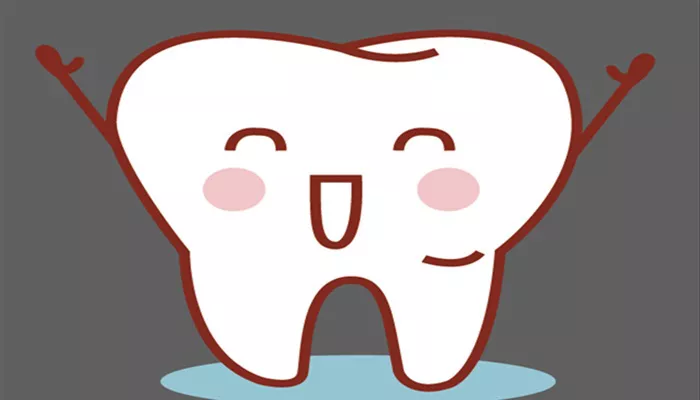Impacted teeth are a common dental issue that can cause significant discomfort and potential health problems if left untreated. As a dental expert with extensive experience in orthodontics and oral surgery, I have encountered numerous cases of impacted teeth and understand the importance of early diagnosis and treatment. In this article, we will explore the symptoms of impacted teeth in detail, highlighting the various signs that may indicate the presence of an impacted tooth.
Understanding Impacted Teeth
Before diving into the symptoms, it’s essential to understand what impacted teeth are. Impacted teeth are teeth that fail to fully erupt or come out of the gums due to various obstacles, such as lack of space, bone or soft tissue impediments, or abnormal positioning. The most common teeth to become impacted are wisdom teeth (third molars), followed by maxillary canines (upper eyeteeth or cuspids).
Common Types of Impacted Teeth
Wisdom Teeth: Wisdom teeth are the last teeth to develop, usually starting to form around age nine but not emerging through the gum tissue until the late teens or early twenties. By this time, the jaws may have already stopped growing, leaving insufficient space for the wisdom teeth to erupt properly.
Maxillary Canines: These teeth are also frequently impacted, often due to their critical role in the bite and the limited space available in the upper jaw. Because of their importance, orthodontists may recommend treatments to encourage their eruption rather than removal.
Symptoms of Impacted Teeth
Impacted teeth can cause a range of symptoms, some of which may be subtle and easy to overlook. Here are the most common symptoms associated with impacted teeth:
1. Pain and Tenderness
One of the most obvious symptoms of impacted teeth is pain or tenderness in the affected area. This pain may be localized to the gums around the impacted tooth or may radiate to other parts of the jaw. The pain may worsen when chewing or applying pressure to the area.
2. Swelling and Redness
Swelling and redness of the gums around the impacted tooth are also common symptoms. This inflammation is often caused by the pressure of the tooth trying to erupt through the gum tissue or by infection. In severe cases, the swelling may extend to the cheek or neck area.
3. Bad Breath and Unpleasant Taste
If an impacted tooth is partially erupted, food particles and bacteria can get trapped in the space between the tooth and the gum tissue, leading to an infection called pericoronitis. This infection can cause bad breath and an unpleasant taste when biting down or near the affected area.
4. Difficulty Opening the Mouth
In some cases, the inflammation and swelling caused by an impacted tooth may make it difficult to open the mouth fully.
This can be particularly problematic for patients who need to undergo surgical removal of the impacted tooth.
5. Visible Space in the Gums
If an impacted tooth never erupts, there may be a visible space in the gums where the tooth did not come out. This space can be a trap for food particles and bacteria, leading to infection and other complications.
6. Swollen Lymph Nodes
Swollen lymph nodes in the neck or jaw area are another common symptom of impacted teeth. This swelling is often a sign of infection or inflammation caused by the impacted tooth.
7. Tooth Displacement
In some cases, an impacted tooth may push against adjacent teeth, causing them to become crowded, twisted, or displaced.
This can lead to bite problems, tooth decay, and gum disease.
8. Cyst Formation
If an impacted tooth is left untreated for a long time, a cyst may form around the tooth. This cyst can continue to grow and destroy surrounding bone and teeth, potentially causing significant damage to the jaw and adjacent structures.
Diagnosis and Treatment of Impacted Teeth
If you experience any of the symptoms mentioned above, it’s essential to seek professional dental care. Your dentist will perform a thorough examination, including a visual inspection, X-rays, and possibly a CT scan, to confirm the presence of an impacted tooth and assess its position and condition.
Based on the diagnosis, your dentist may recommend various treatment options, depending on the severity and location of the impacted tooth. These options include:
Monitoring: In some cases, impacted teeth may not require immediate treatment. Your dentist may recommend regular monitoring with X-rays to ensure that the tooth does not cause any problems.
Extraction: If an impacted tooth is causing pain, infection, or damage to adjacent teeth, your dentist may recommend surgical extraction. This procedure involves removing the impacted tooth and any surrounding bone or tissue that may be obstructing its eruption.
Orthodontic Treatment: In some cases, orthodontic treatment may be required to create enough space for an impacted tooth to erupt properly. This may involve braces, spacers, or other appliances to gradually move the teeth into their correct positions.
Laser Surgery: Laser surgery is a newer treatment option for impacted teeth that involves using a laser to cut through the gum tissue and bone, allowing the tooth to erupt more easily. This method is less invasive and may result in faster healing and less discomfort than traditional surgical extraction.
Conclusion
Impacted teeth can cause a range of symptoms, from mild discomfort to severe pain and infection. Early diagnosis and treatment are essential to prevent potential complications and maintain optimal oral health. If you experience any of the symptoms associated with impacted teeth, don’t hesitate to seek professional dental care. With the right treatment, you can achieve a healthier, more comfortable smile.
Related topics:

